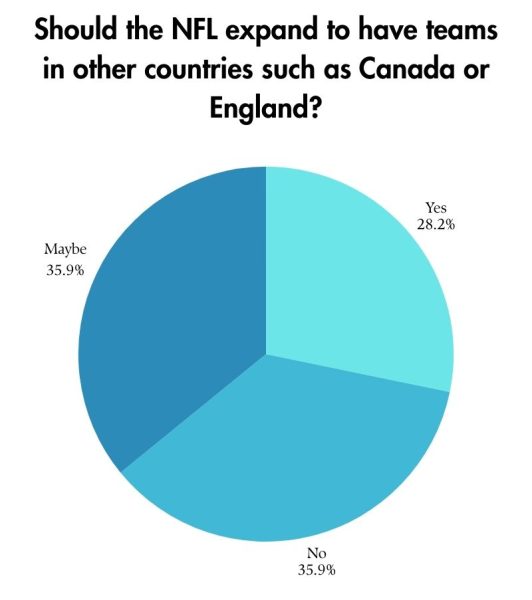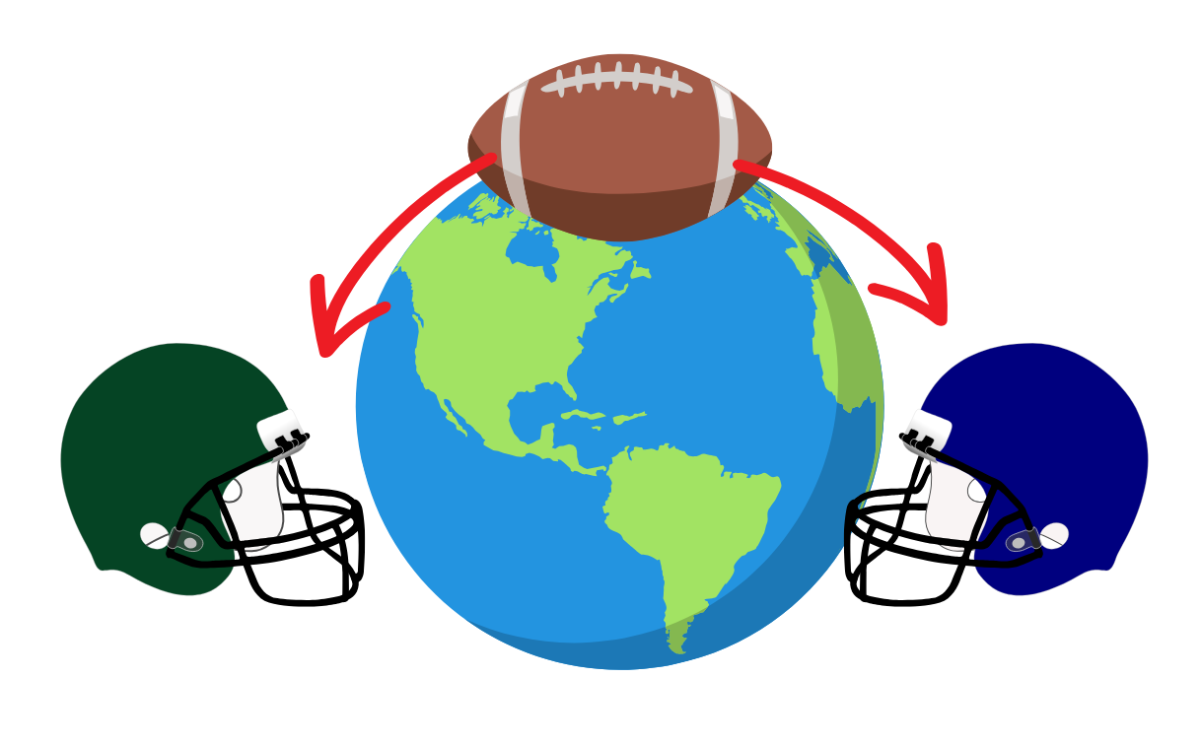 When someone in Europe says “football,” you probably would expect that they mean “fútbol,” what most Americans call soccer. Increasingly, though, American football has been establishing a foothold in Europe, making way for an American football fanbase and potentially even an international NFL franchise.
When someone in Europe says “football,” you probably would expect that they mean “fútbol,” what most Americans call soccer. Increasingly, though, American football has been establishing a foothold in Europe, making way for an American football fanbase and potentially even an international NFL franchise.
It’s not just the National Football League (NFL) that has planned regular season games (National Football League) across Europe in soccer or rugby stadiums such as Wembley Stadium in London, Olympic Stadium in Berlin, and Bernabéu Stadium in Madrid. The National Collegiate Athletic Association (NCAA) has permitted Division 1 college football teams to travel for an international game once a season every four years per team.
Most recently, the college football regular season-opener was held Aug. 23 in Dublin, with the Iowa State Cyclones defeating the Kansas State Wildcats 24-21. The Bahamas Bowl, held in Cuba during the postseason every year since 2014, is also a regular international college football game.
The NFL has also created a system called the Global Markets Program, which allows American teams to have marketing rights in other countries. In turn, this helps teams create an international fan base. Officially, 29 of the NFL’s 32-team group are legally able to promote themselves to potential fans in other countries.
So, for all of the NFL’s enthusiasm about international marketing and games, why hasn’t a professional European-based American football team been in the talks? Some fans say that it would be confusing for everybody involved.
In a Prowler Poll with 170 responses, only 28 percent of students said that they wanted the NFL to expand and include international teams based in countries such as Canada or England. Many responses pointed out that the NFL stands for National Football League, not the International Football League, and that football is a special American sport, and not something that other countries are known for.
It’s worth noting that the professional hockey league in the United States is called the National Hockey League (NHL), and it includes seven Canadian hockey teams, including Stanley Cup-competing teams like the Edmonton Oilers and the Toronto Maple Leafs.
Still, many students, such as sophomore Rowe Carter, are adamant about their opinion on an American football expansion. “Football in other countries would bring more excitement to the sport and provide other countries with another great sport,” Carter said.
Sophomore Elizabella Watkins explains the pros and cons of NFL expansion.
“If they do, it expands the audience, [and] it opens opportunities for more businesses and people, but a downside would be the money and teamwork going into setting that up,” Watkins said.
If the NFL were to establish a team in another country, I believe the likeliest spots would be Canada or Mexico. Because of Canada and Mexico’s geographic proximity to the United States, all the teams wouldn’t have to travel anymore than they already do.
Besides, that has already been done with other professional sports leagues such as the Major League Soccer (MLS, professional men’s soccer), the National Women’s Soccer League (NWLS), and the National Hockey League (NHL).
Overall, there’s no telling whether the NFL will establish a European team in the future, but for now, the number of international American football games only increases, and the fanbase will continue to grow larger. Still, it’s unlikely that an international team would be welcomed by the students at RCHS. After all, it remains the National Football League, not the International Football League.








